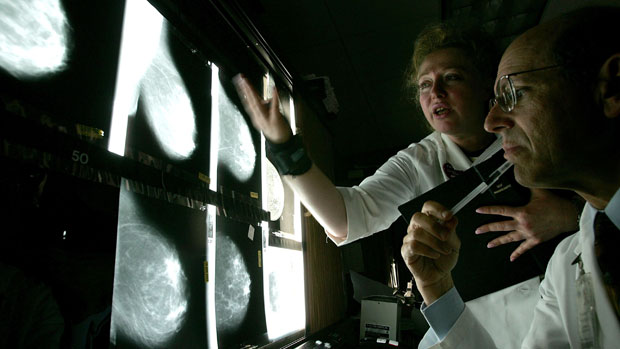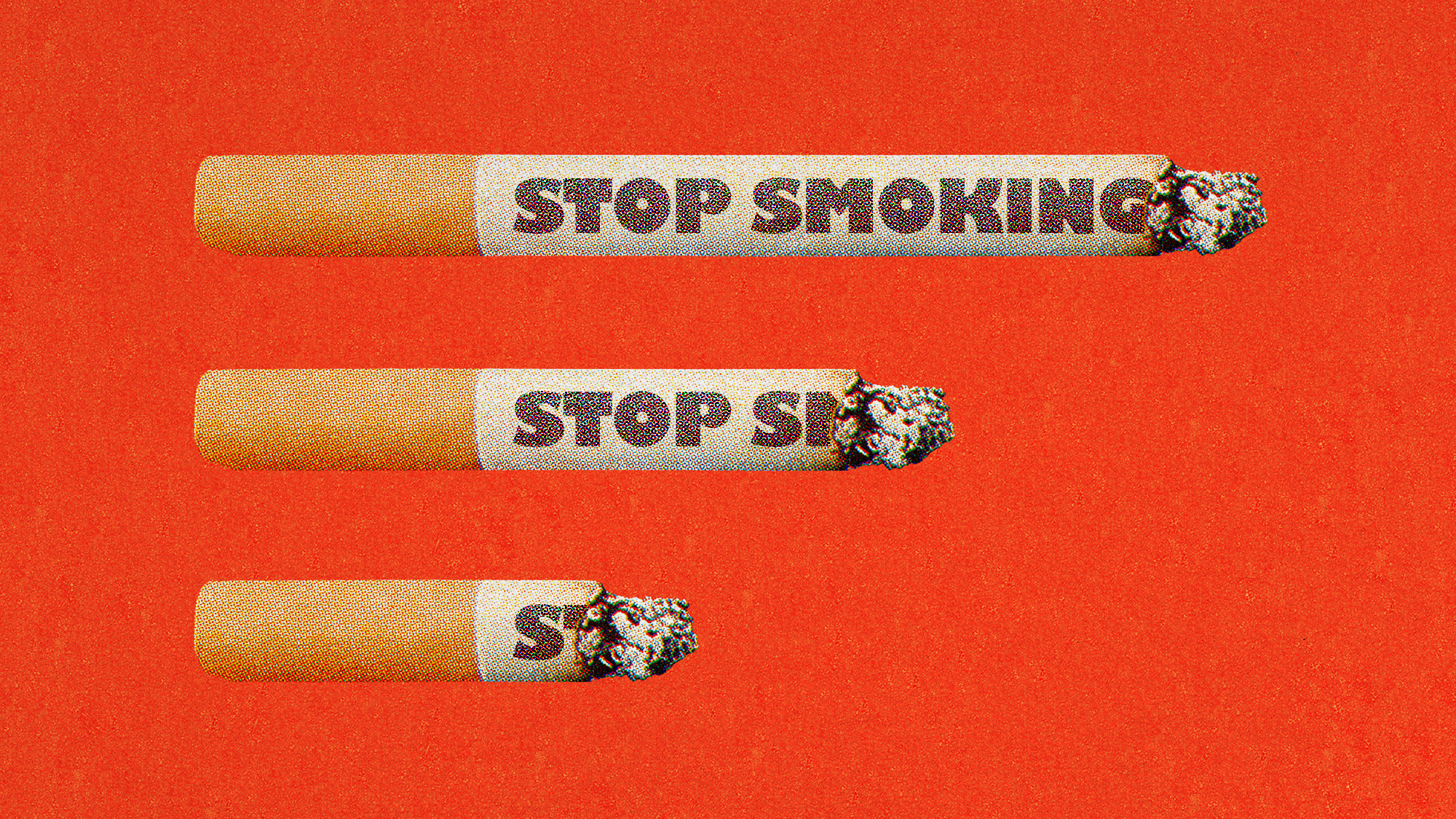Ten ways to reduce the risk of cancer
New report says obesity set to overtake smoking as leading global cause of the disease

A free daily email with the biggest news stories of the day – and the best features from TheWeek.com
You are now subscribed
Your newsletter sign-up was successful
A newly published ten-point “blueprint to beat cancer” could help prevent up to 40% of all cancer cases, according to experts.
The report, updated every decade by the World Cancer Research Fund (WCRF), analyses the reasons for the global rise in cancer rates and provides guidelines on how to reduce the risk of getting the disease.
The global health authority warns that obesity is set to overtake smoking as the leading cause of cancer within a couple of decades in many countries, including the UK. Regularly drinking sugary drinks and eating junk food, which can cause weight gain, therefore increases the risk of cancer, the report says.
The Week
Escape your echo chamber. Get the facts behind the news, plus analysis from multiple perspectives.

Sign up for The Week's Free Newsletters
From our morning news briefing to a weekly Good News Newsletter, get the best of The Week delivered directly to your inbox.
From our morning news briefing to a weekly Good News Newsletter, get the best of The Week delivered directly to your inbox.
Processed foods and meat are also identified as high-risk foods, because of carcinogenic chemicals involved in their preparation.
The WCRF says that no amount of alcohol is safe to drink, and that consuming it even “in moderation” still increases the risk of at least six cancers.
Instead, people should “maintain adequate hydration by drinking water or unsweetened drinks, such as tea or coffee without added sugar”.
Professor Linda Bauld, of Cancer Research UK, said: “This report supports what we already know – the key to cutting cancer risk is through our way of life. Not smoking, keeping a healthy weight, eating and drinking healthily, and getting more active, all helps.”
A free daily email with the biggest news stories of the day – and the best features from TheWeek.com
The ten recommended steps for reducing cancer risks are:
- Keeping a healthy weight
- Maintaining physical activity - at least 75 minutes of vigorous exercise each week
- Eating five portions of fruit and veg a day, particularly green leafy vegetables such as broccoli and okra
- Reducing intake of processed foods high in fat, starches or sugars, such as pre-prepared dishes, snacks, bakery foods, desserts and sweets
- Eating no more than three portions a week of red meat, such as beef, pork and lamb, and as little processed meat as possible
- Drinking water and unsweetened drinks, and avoiding fruit juice
- Not drinking alcohol
- Avoiding dietary supplements (aim to meet nutritional needs through diet alone)
- Breastfeeding babies
- Following the above recommendations even after a cancer diagnosis
-
 The Olympic timekeepers keeping the Games on track
The Olympic timekeepers keeping the Games on trackUnder the Radar Swiss watchmaking giant Omega has been at the finish line of every Olympic Games for nearly 100 years
-
 Will increasing tensions with Iran boil over into war?
Will increasing tensions with Iran boil over into war?Today’s Big Question President Donald Trump has recently been threatening the country
-
 Corruption: The spy sheikh and the president
Corruption: The spy sheikh and the presidentFeature Trump is at the center of another scandal
-
 The truth about vitamin supplements
The truth about vitamin supplementsThe Explainer UK industry worth £559 million but scientific evidence of health benefits is ‘complicated’
-
 Obesity drugs: Will Trump’s plan lower costs?
Obesity drugs: Will Trump’s plan lower costs?Feature Even $149 a month, the advertised price for a starting dose of a still-in-development GLP-1 pill on TrumpRx, will be too big a burden for the many Americans ‘struggling to afford groceries’
-
 Covid-19 mRNA vaccines could help fight cancer
Covid-19 mRNA vaccines could help fight cancerUnder the radar They boost the immune system
-
 Quit-smoking ads are being put out
Quit-smoking ads are being put outUnder the radar The dissolution of a government-funded campaign could lead to more smokers in the future
-
 The battle of the weight-loss drugs
The battle of the weight-loss drugsTalking Point Can Novo Nordisk and Eli Lilly regain their former stock market glory? A lot is riding on next year's pills
-
 Food may contribute more to obesity than exercise
Food may contribute more to obesity than exerciseUnder the radar The devil's in the diet
-
 Deadly fungus tied to a pharaoh's tomb may help fight cancer
Deadly fungus tied to a pharaoh's tomb may help fight cancerUnder the radar A once fearsome curse could be a blessing
-
 'Poo pills' and the war on superbugs
'Poo pills' and the war on superbugsThe Explainer Antimicrobial resistance is causing millions of deaths. Could a faeces-filled pill change all that?